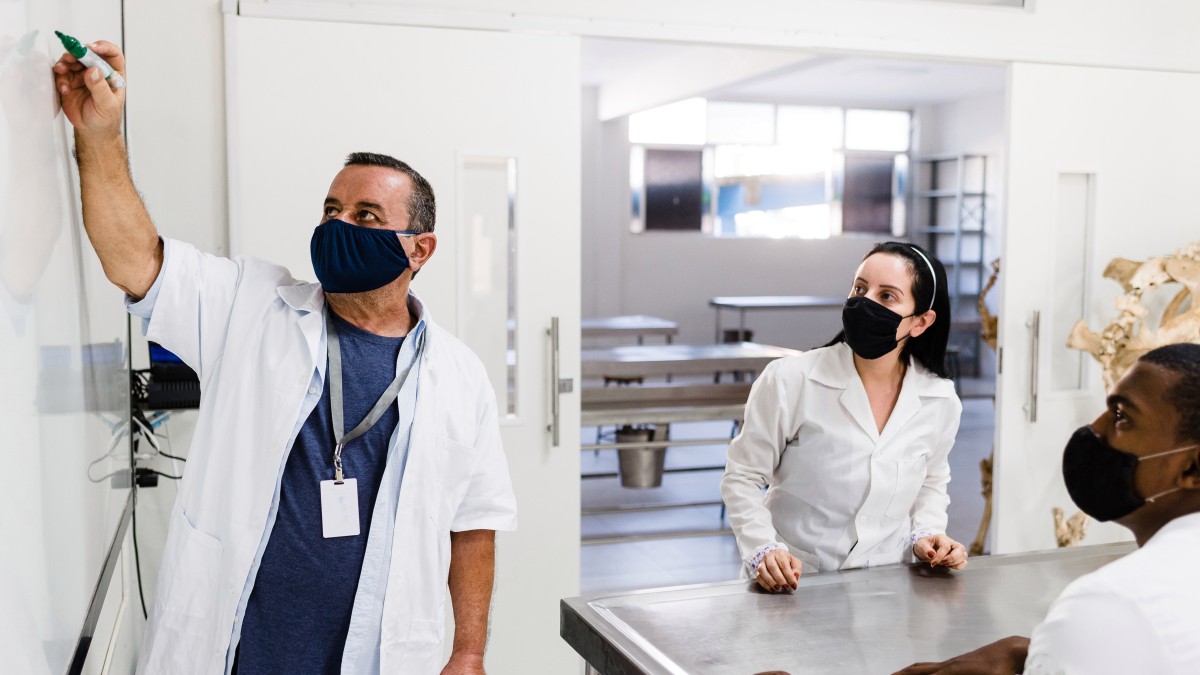Deciding which medical school is right for you is an intricate task that involves a lot of research and considerations. Next-generation doctors who dream of becoming licensed physicians want to gain a spot in a high-quality medical school. From earning an impressive GPA to participating in extracurricular activities, creating a strong personal statement, and gaining strong recommendation letters, medical school applicants have to consider a number of things during the admission process.
Medical school is a long and rigorous journey and can be a stressful and emotional experience for many. Therefore, prospective medical students need to choose a school that offers a supportive atmosphere and where they feel comfortable studying and feel at home.
If you are one of those fortunate premedical students who has been accepted by more than one school, there are some important considerations that prospective medical students should keep in mind to make a well-informed decision. Evaluating multiple factors, such as a school’s academic record, student services, location, campus, and studying environment, will help you make the right choice.
These tips will help you decide which medical school is a good fit for you.
Let’s check them out.
Fee Structure
When it comes to choosing the right medical school, it is advised to closely monitor the fee structure of the school. You can check the websites of the schools and compare the financial packages they offer. Some medical schools offer federal student loans, while some don’t. It is advised to check this clearly before making a final decision. Some students are willing to negotiate on the fee package; it is better to check the cost of tuition and discuss all the possible options with the finance department to make the right decision.
Advising System
Medical schools have academic and career advising structures that are exclusively designed to address students’ academic and personal issues that may arise during their medical school journey. Some schools have a team of student counselors and academic advisors that can help students deal with anxiety, manage academic and personal life difficulties, and prepare them for licensing exams and shelf exams.
Medical student advising is focused on career advising, choosing the right electives, exploring medical specialty choice, and finding the perfect residency match. Student advisors of top medical schools are not limited to coaching and polishing your study skills. They also deal with students’ wellness issues such as managing relationships, health issues, and screening for mental health issues.
It is a great idea to clearly know the academic advising program and the availability of trained and professional teachers. If a website of a medical school doesn’t mention their faculty members or academic advisors’ information on its website, it clearly shows that you should rethink your decision.
Clinical Rotations
Some medical students want to become a pediatrician, while many want to polish their surgery skills. If you have made your mind and decided which medical specialty to choose, it is recommended to have close contact with faculty and residents in that particular specialty. It will help you know the format and order of the clinical rotations during MS3 and MS4 years and choose electives to complete your courses.
Medical schools offer clinical rotations to provide students with an opportunity to shadow doctors while polishing hands-on experience in the medical field. The goal of offering clinical rotations is to enable students to diagnose the disease, treat patients, and learn how to use medical equipment. Check carefully whether the school provides clinical rotations in a variety of hospital and outpatient settings. Watch out for schools that offer different learning opportunities, clinical rotations, and internship opportunities.
Residency Match
After completing your MD program, you will get the opportunity to enroll in a residency program to gain training in the specialized field of medicine. For instance, if you want to become a hematologist, you will get training in a hematology residency program. The match is one of the most important factors that you should keep in mind while looking for the right medical school to start your journey of becoming a doctor.
Many schools share their residency match results on their website. You can see the list to check how many candidates got their perfect residency match. Talk to your seniors about their match; if they are unhappy with their residency match results, it is a clear indication that you should look for another option to complete your MD degree.
Bottom Line
Choosing the right medical school is a challenging undertaking; however, keeping these important points in mind will help you make a well-informed decision. It is important to know where the students perform their clinical rotations, the residency match rate, visit the faculty and student advisors’ profiles, the cost of tuition before attending medical school in the Caribbean.







